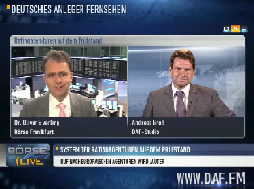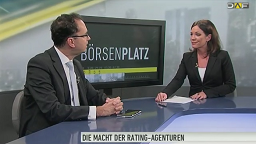« Damages of the Subprime Crises | Home | Immobilienbewertung Österreich »
Accusations Carry Some Weight
Von Dr. Oliver Everling | 20.März 2008
Two accusations against the agencies do carry some weight, writes Roger P. Nye, President of Global Investment Advisors, Inc. (GIA)a, Carlsbad, California, in his „The GIA Bulletin“ (www.gia-inc.com). „They concern modeling and monitoring.“ First, he notes, it seems clear that the agencies were basing their ratings on standard historical data of mortgage-backed securities when the products being rated were actually innovative and highly complex instruments with little performance history behind them to base a judgment on. Thus, the model in play was out of date. The IMF’s „Global Financial Stability Report“ issued in mid-September 2007 supported this contention: „the problems primarily related to the fact that the sub-prime markets were too young to provide enough meaningful data and that insufficient analysis had been done on the actual data.“
Second, writes Nye, „as agency insiders will admit, monitoring developments in the market that might affect outstanding rated securities is not a priority at the agencies.“ Given the pace of business and other priorities, the promise to monitor is not usually the practice. Nye believes that analysts have little time and little incentive to watch how the secondary market is pricing securities since their ratings are not meant to capture price volatility, only default risk.
„That said,“ adds Nye, „there is obviously a link between big changes in economic fundamentals, such as higher interest rates and higher inflation, and their impact on default risk for various classes of securities.“ However, the rating agencies do not focus their attention on this sufficiently after ratings are issued and do not adequately „stress test“ the rating under numerous scenarios.
Moody’s (but not, according to the observations of Nye, S&P) is also blamed for mixing their rating and consulting functions, that is, mingling two roles: assigning ratings and advising issuers of securities on how to secure better ratings. Like the accounting firms a decade or so ago (doing both bookkeeping and advisory) and the investment banking industry four years ago (doing both deal making and research), Moody’s can be accused of playing both sides. As a result, the authorities in Europe and the U.S. may require that the agencies‘ advisory role be performed separately in order to eliminate the clear conflict of interest. GIA predicts that this issue will not go away.
Themen: Nachrichten | Kommentare deaktiviert für Accusations Carry Some Weight
Kommentare geschlossen.
 Börse hören. Interviews zu aktuellen Ratingfragen im Börsen Radio Network. Hier klicken für alle Aufzeichnungen mit Dr. Oliver Everling seit 2006 als Podcasts.
Börse hören. Interviews zu aktuellen Ratingfragen im Börsen Radio Network. Hier klicken für alle Aufzeichnungen mit Dr. Oliver Everling seit 2006 als Podcasts.










